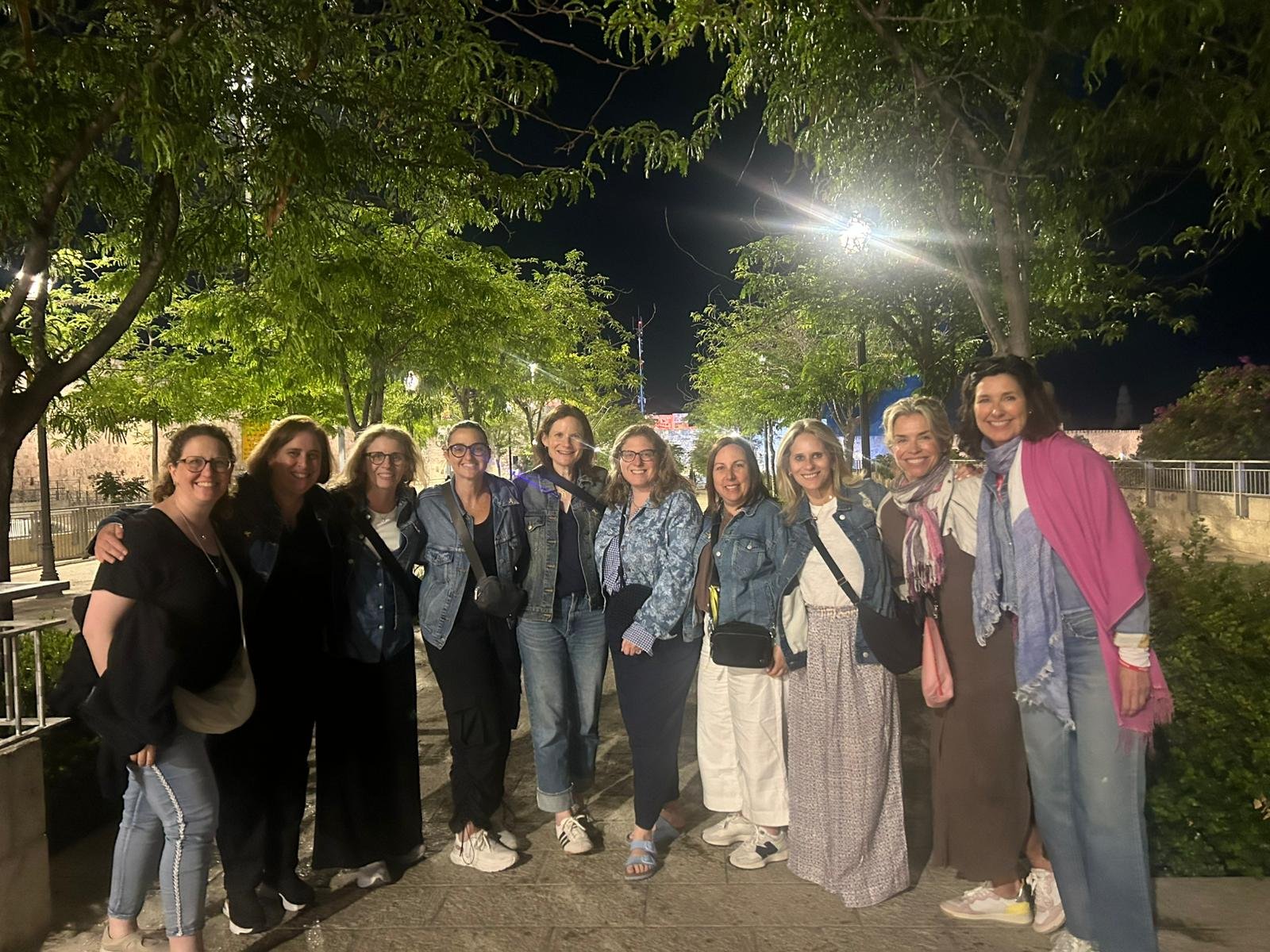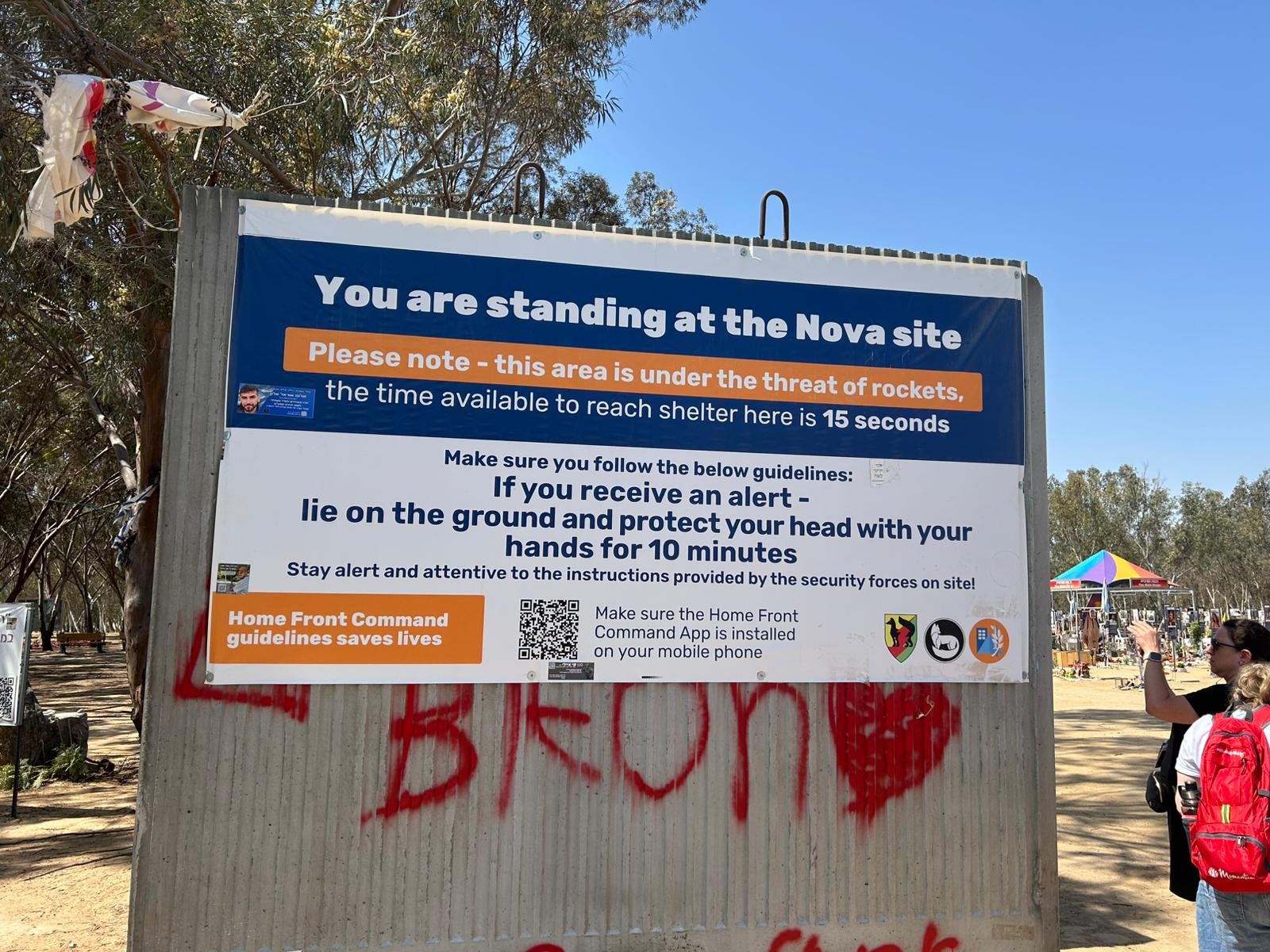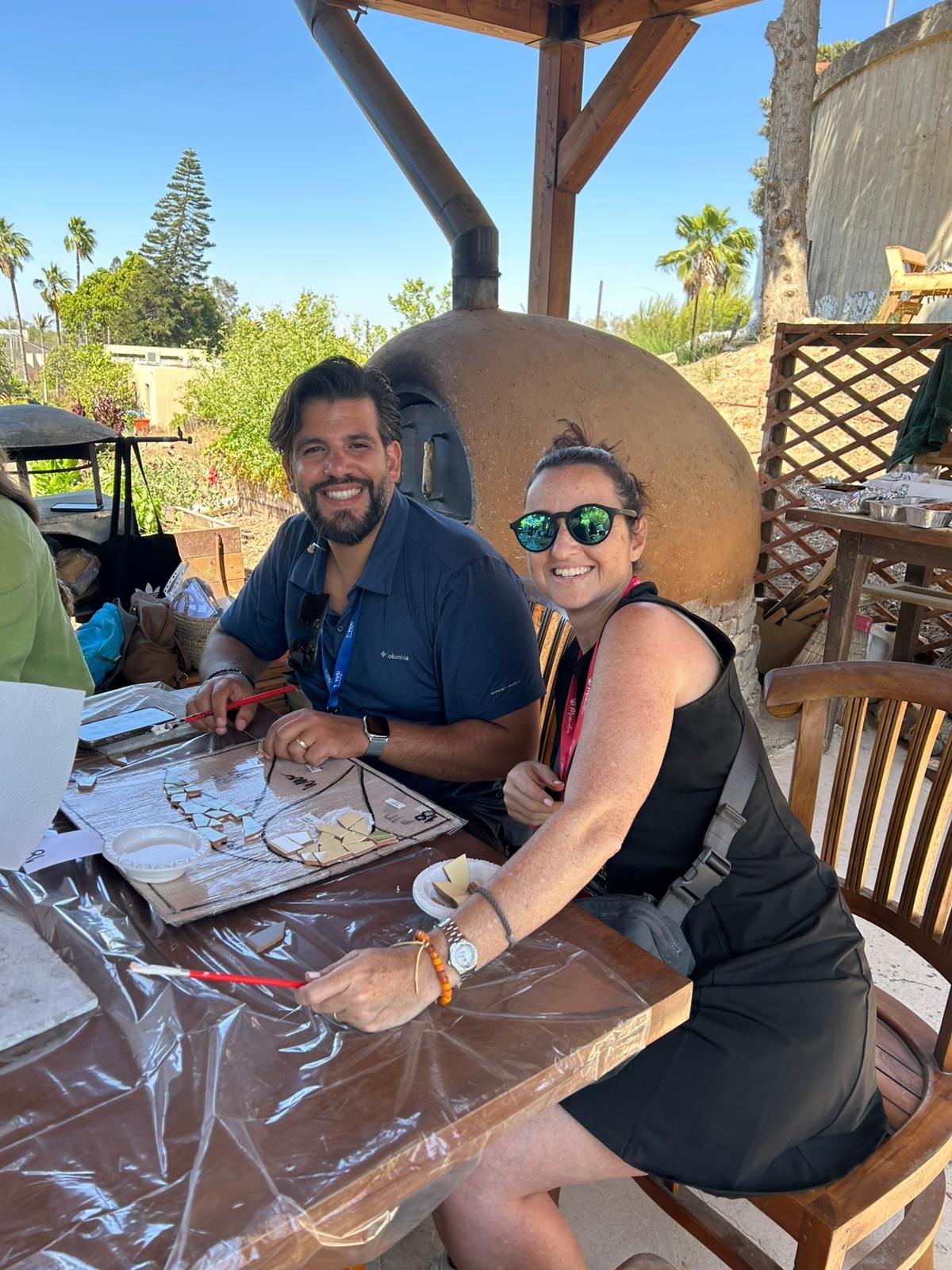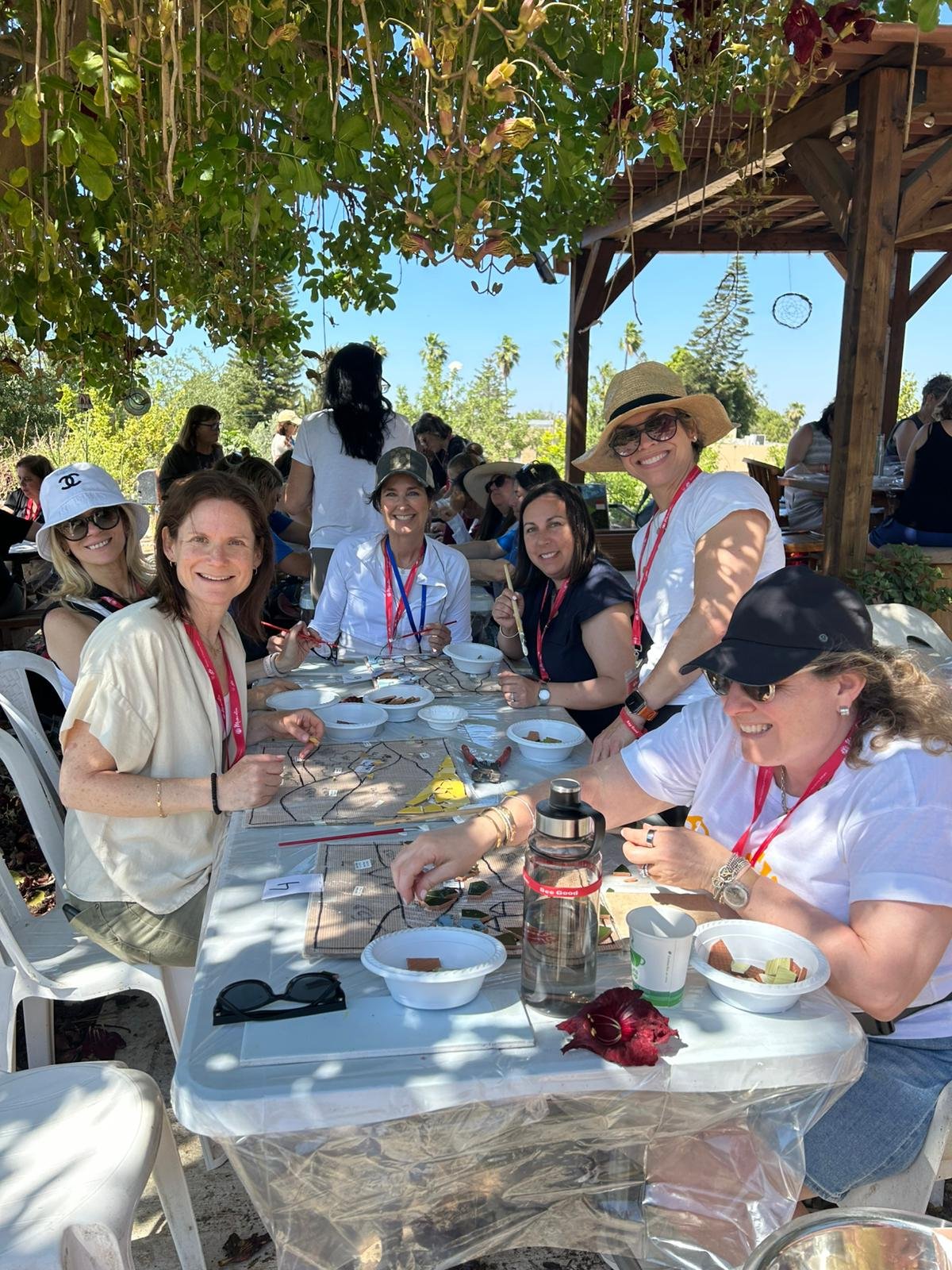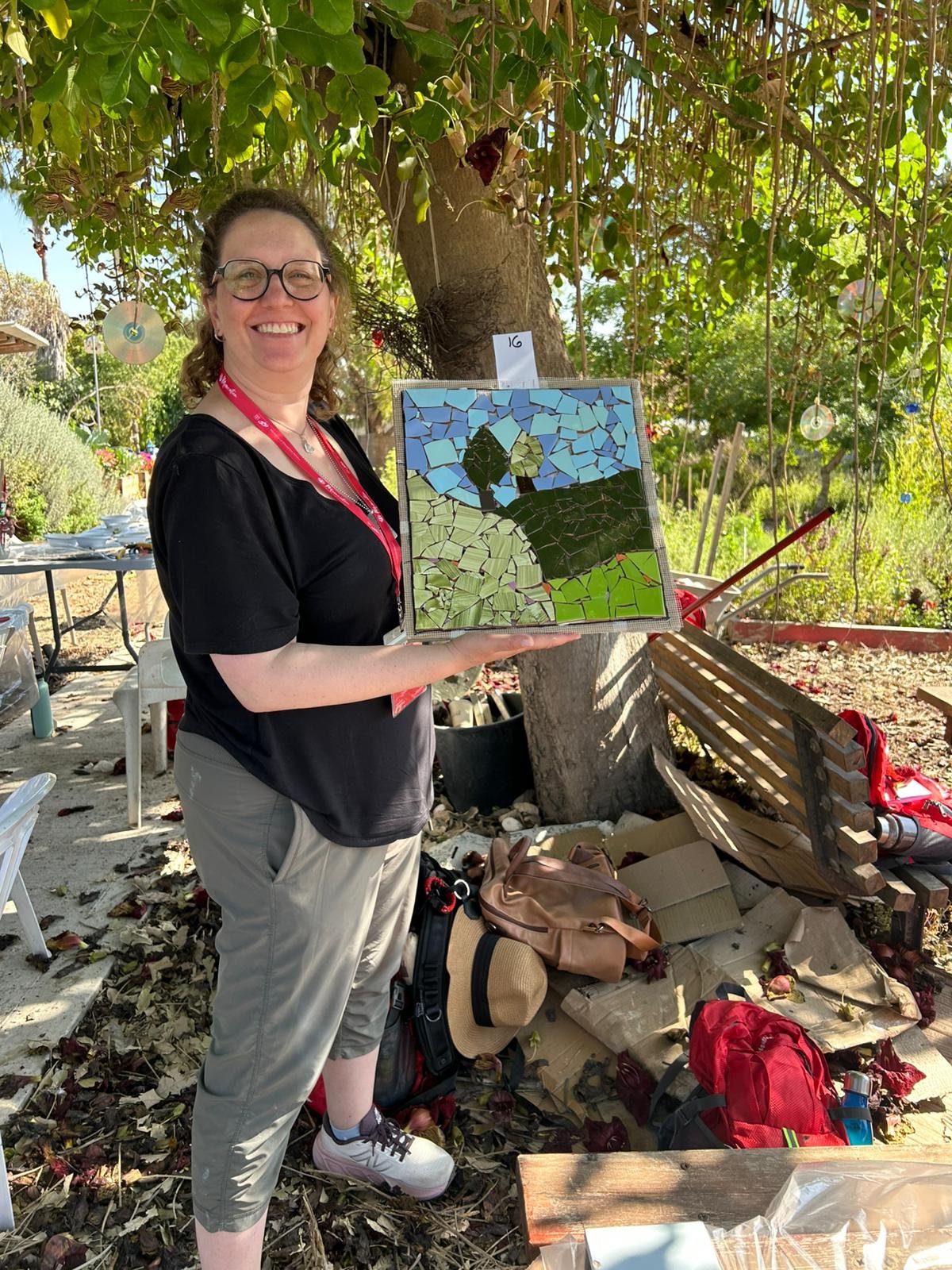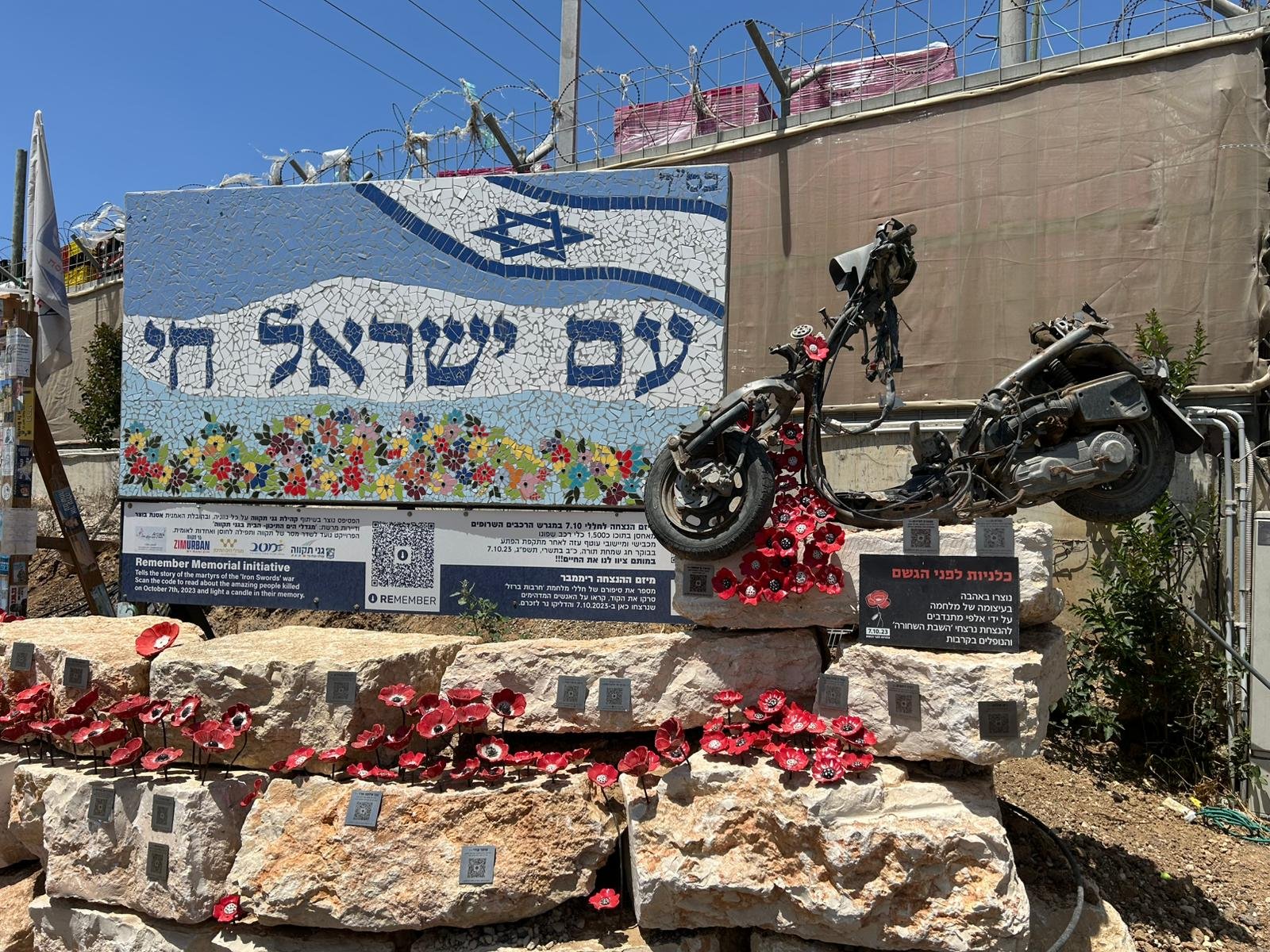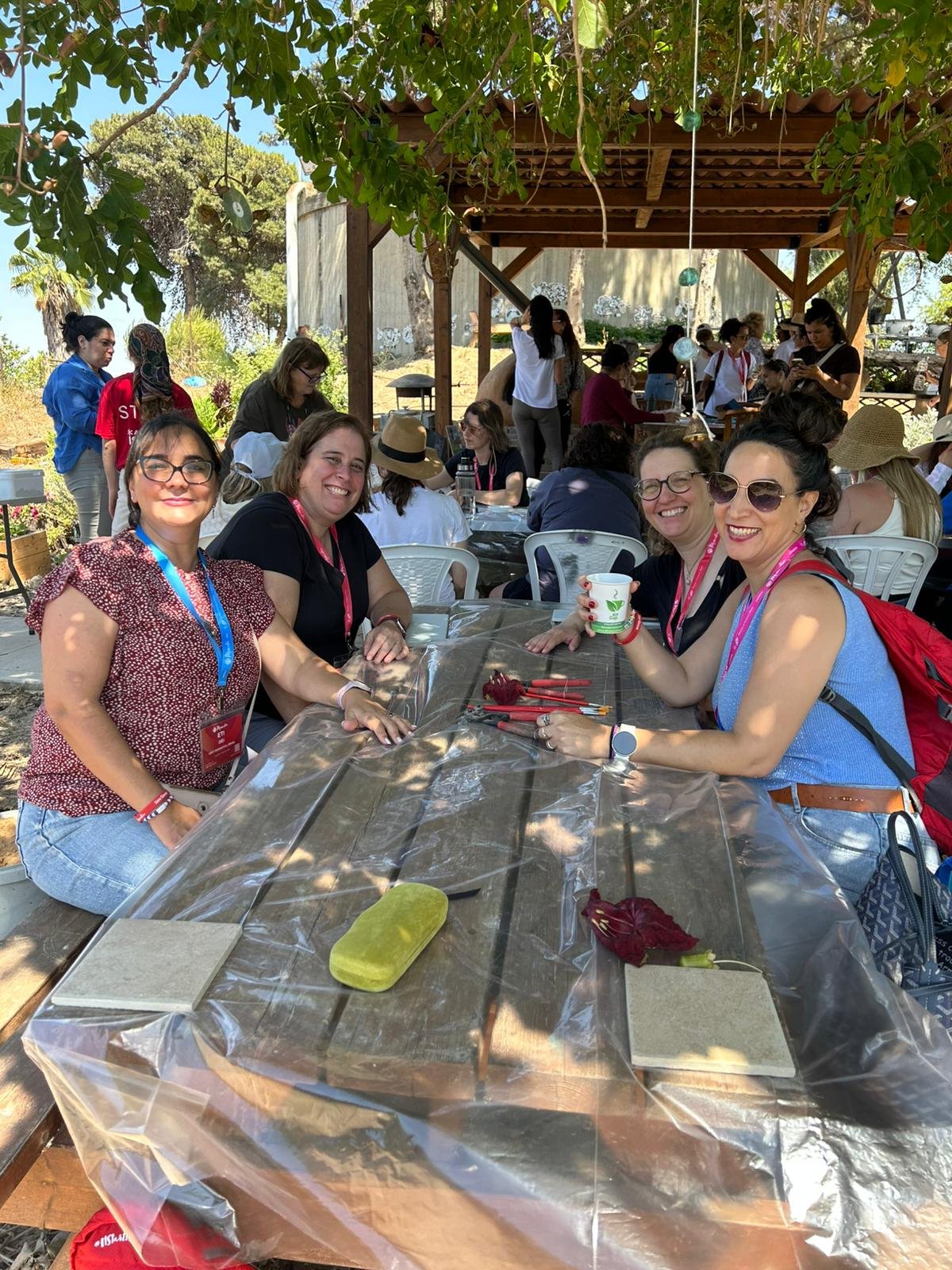MOMentum Day 2- Reflections
For the past 492 days, we have had images of October 7th seared into our consciousness. Whether it was the gut wrenching video of Noa Argamani stolen from the Nova festival on the back of a motorcycle, or the horrific footage of terrorists in white pickup trucks shooting at innocents trying to flee the area, or the shocking imagery of RPGs being blasted at cars, so many of us have witnessed the traumatic events of that day solely through social media, documentaries, or via the testimony of survivors who have visited our diaspora communities. Today was going to be our opportunity to bear witness to the atrocities, and for that reason, I undoubtedly expected it to be one of the hardest days of the trip.
We began the day in Tel Aviv with an inspirational talk by Adrienne Gold-Davis on the topic of the day, “Upholding Human Dignity”. The attacks on October 7th violated a ceasefire that had been in place for over two years, and the resulting massacre and hostage crisis has been and continues to be a catastrophic affront to and violation of human dignity.
Yet, “to everything there is a season.” Many of us grew up singing the lyrics to the song by The Byrds, perhaps not knowing that their inspiration was biblical. The Book of Ecclesiastes (Kohelet) teaches us that there is “a time for war and a time for peace” (3:8). And having a time for war does not preclude the need to maintain our human dignity. The fallout is allowed to hurt, we are allowed to be affected by it, but above all, we must bear witness.
Adrienne also shared with us the story of Moses at Mount Sinai when he came down from the mountain with the two tablets. Upon his return, he was shocked to find the Israelites worshipping a golden calf. In a fit of rage and anger, Moses lifted up the tablets and smashed them down on the ground. Moses then returned to the mountain, and came back weeks later, and the “do over” implementation was successful. Our sages, however, teach us that the broken pieces of the first tablets were gathered and put into the Mishkan - the Ark of the Covenant - and carried alongside the actual Tablets. We learn from this that we walk through life with both the broken and the whole – our hearts can and must carry and contain both the sadness and the happiness.
Today was about carrying both.
At the Nova festival site, memorials stand in tribute to all the lives lost that day. Each victim is honoured with a tribute featuring a photo and a short write up. We were encouraged to personalize the scale of the horror by focusing on one person. My eyes and heart were drawn to Shai Regev, a beautiful young woman whose photograph depicts her wearing a crown of yellow flowers, body painted with more, and sporting a shy yet mischievous look to her left. Her write up leads with the quote “if only I could learn the way of one tree.” She was a journalist who was asked to write about her favourite Israeli song for Independence Day a few years ago and chose the song “Cypress” by Ehud Menor and Ariel Zilber. She wrote “the tall, green cypress allows itself to bend; some might see this as a symbol of someone who knows how to fight their battles, but I interpret it as the tree’s ability to let sadness settle in its heart without breaking. It stands firm until the storm passes, and then it rises again, looking out over the world from above.”
What a perfect depiction of carrying both the sad and the happy. She wrote these words at age 22, and was only 25 years old when her life was senselessly cut short.
Every one of the 347 victims of the Nova Festival was a whole universe, shattered. We each carried the broken pieces in our hearts as we got back on the bus.
Less than an hour later, we were at Kibbutz Karmia to complete an “art therapy project”. Having no additional details available, we weren’t sure what to expect. Well, quite serendipitously, we were meant to take broken pieces of enamel and create a beautiful mosaic. It was a quite literal application of carrying the broken with the whole, and the hour of focused concentration and mosaic-by-numbers was a beautiful way to repair and nourish our souls. Our individual mosaics, each of which was a collection of broken pieces, would then be joined into a large mosaic with an agricultural motif that would encircle the Kibbutz’s water tank, beautifying the already magnificent oasis of calm. And we cannot forget that among the breezy rustling of leaves, busy chirping of birds, faint buzzing of insects, melodic jingle of the wind chimes, and the sounds of our laughter, there was also the occasional sudden interruption of a “boom!” from Gaza. All these sounds live together in this world; the happy with the sad.
As I reflect on this day while getting ready for sleep, I come back to the melody and inner rhythm of the different seasons:
A time to build up, a time to break down
A time to dance, a time to mourn
A time to cast away stones, a time to gather stones together
A time for love, a time for hate
A time for peace, I swear it's not too late.
May we merit the return of all 58 hostages and an end to this dark chapter of our history.
Written by: Joanna S (Biluim ‘91)
